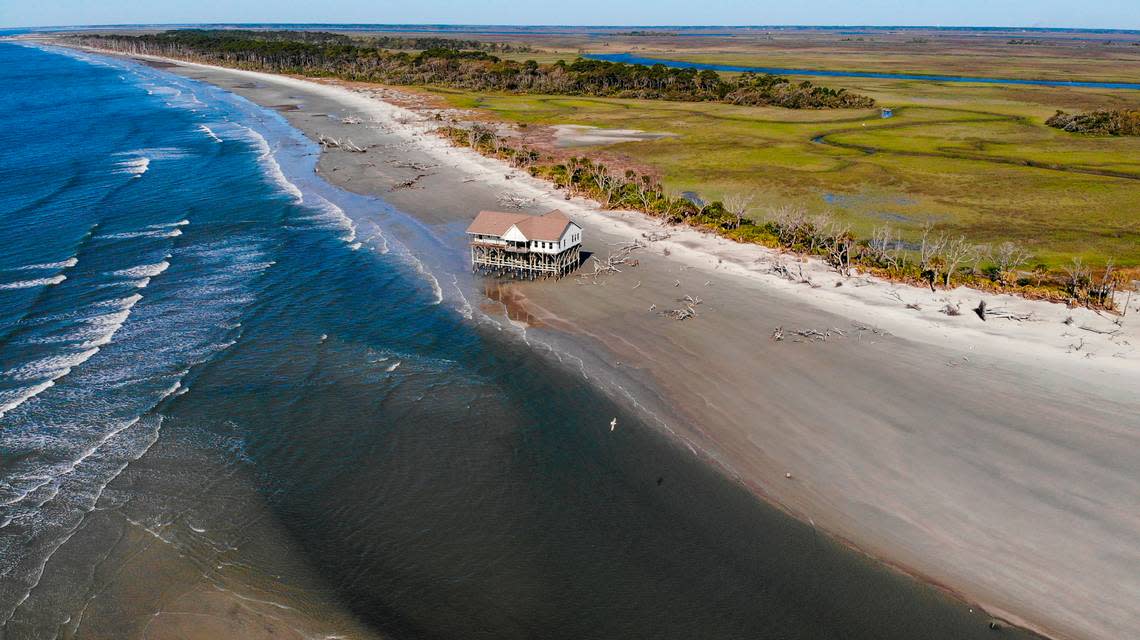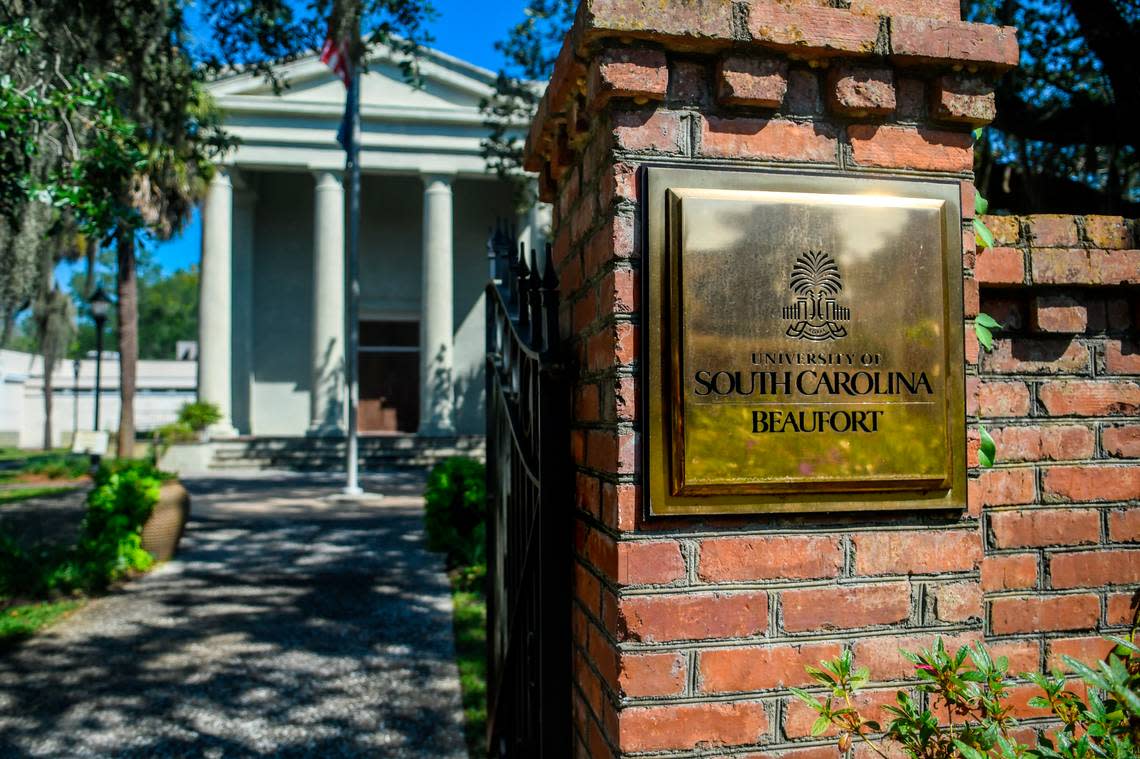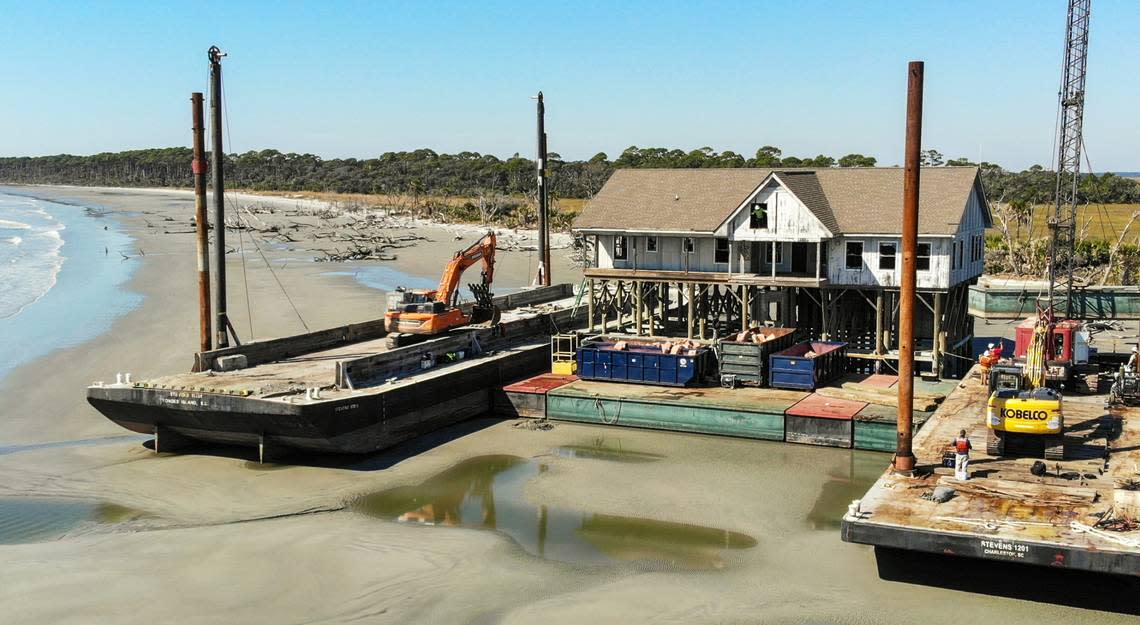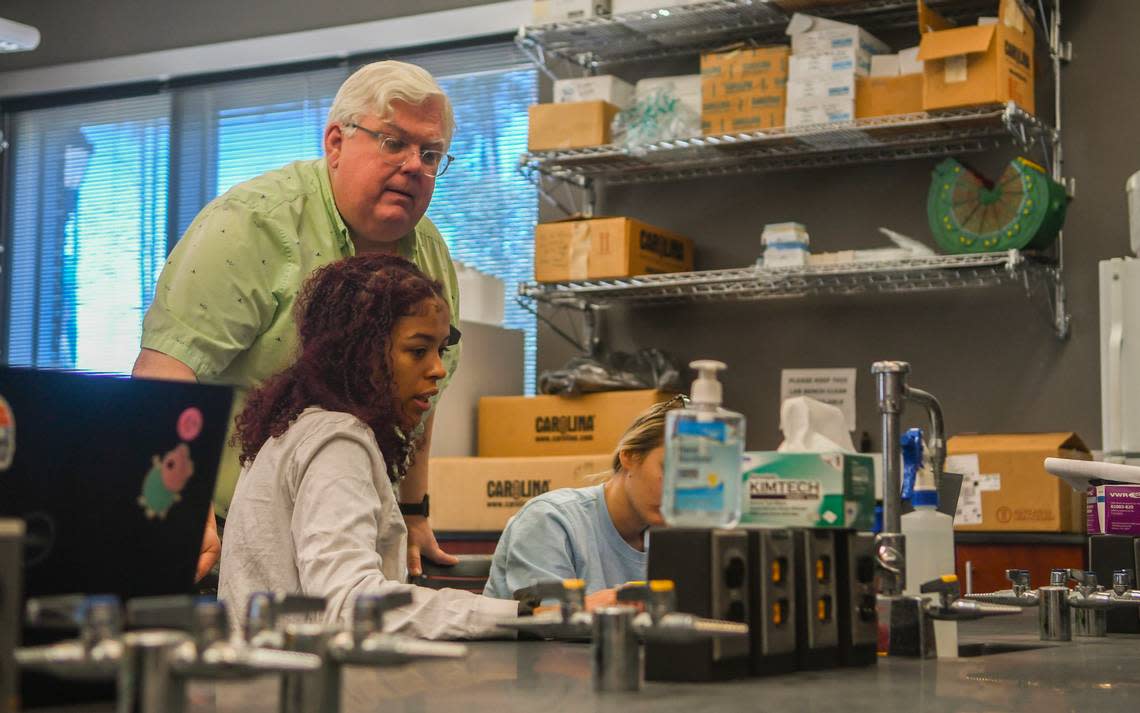McMaster vowed to keep USC-owned island in SC hands. Will lawmakers spend $1.25M to help?
Some might call it a marathon, but if all goes as planned, the next leg in reestablishing an abandoned University of South Carolina-owned barrier island is more like a sprint.
USC-Beaufort is asking the state legislature for the full $1.25 million the school has said it needs to revive Pritchards Island back to its intended purpose after more than a decade of neglect. If full funding is appropriated by the state this year, USCB would overcome a massive hurdle in the race to get the island back on track.
Donated by Philip Rhodes to USC in the 1980s, the Beaufort County island was deeded to the then-Carolina Research and Development Foundation for scientific, educational, charitable and general public purposes. But because of erosion, lack of staffing and funding, the island has gone largely unused by USC for about 12 years.
Under a lease agreement with the now-USC Development Foundation, the university system’s Beaufort campus is the tenant of the 1,600-acre island, said Jason Caskey, USC Foundations’ president and CEO.

In June, The State and The Island Packet reported that the Rhodes family said the school wasn’t living up to its agreement. Further, The State reported a stipulation in the deeds meant that USC could lose the island if it didn’t honor the contract. The next benefactor could be the University of Georgia.
By early July, Gov. Henry McMaster promised the Rhodeses he would “live up to every single thing” in the agreement to ensure the island stayed in state hands. Days after McMaster’s pledge, USCB had drafted a two-page document full of plans for the island’s renaissance.
Last week, McMaster’s spokesman said Pritchards Island was “extremely important” to the governor, and USCB asserted that the governor’s office has been “very supportive” of the project to get the island back up to snuff.
The $1.25 million in first year costs would do just that. That is, if the school can secure it through the South Carolina legislature this year.
USCB’s funding plan
When the governor submitted his proposed state budget in December, he did not include funding specifically for Pritchards Island.
McMaster’s suggested funding for USCB matches his approach for funding all of the state’s public universities, said Brian Symmes, McMaster’s spokesman. The governor proposes funding universities based on in-state student enrollment for capital improvements and deferred maintenance. For USCB, McMaster suggests spending $3.6 million on those items.
“Just because he decided to fund USCB in a different way … that doesn’t do anything to take away from the fact that he’s engaged on this issue and committed to making sure that the university satisfies its obligation,” Symmes said last week.

But USCB won’t use those allotted funds on the island. That’s because the school can only spend that money on addressing existing capital renewal projects that were previously approved by the state in the five-year Capital Permanent Improvement Plan, said Beth Patrick, USCB’s Vice Chancellor for Finance and Operations. Pritchards Island was not part of that.
Instead, on Jan. 25, USC representatives will pitch to the House Ways and Means Committee that a special line item of $1.25 million be added to the 2023-24 budget. If approved by the General Assembly, the money would fulfill Pritchards’ first-year needs.
About half of the $1.25 million would be one-time costs for equipment, transportation and other items required to get out on the island. The other portion — $581,000 — would be a recurring expense for docking fees, maintenance and salaries.
If the state legislature doesn’t fully appropriate the funds for Pritchards, USCB’s agency budget plan notes it “will have to delay implementation and seek private investments/gifts.”
The island donor’s granddaughter, Martha Rhodes, said that while the family hopes McMaster will uphold the promise he made to keep Pritchards in state hands, they also “hope and expect USCB will pursue every available source to restart research, education and programming.”
Between presenting to the House Ways and Means Committee later this month and getting the governor’s signature of approval this June, the process is long, complicated and heavily negotiated, Patrick said.
However, with support from McMaster as well as USC President Michael Amiridis and the donor family, there is “no reason to believe that the commitment is not there to try to fund the project as it has been presented,” Patrick said.
After over a decade of disuse and the recent removal of the island’s once-functioning research lab, Pritchards remains ripe ground for research and education.

Plans range from establishing a summer undergraduate research program to monitoring and characterizing the island’s rich ecology.
Because of its untouched and rugged nature, Pritchards serves as a strong comparison to surrounding barrier islands that are highly developed. The juxtapositions are critical in understanding erosion, sea level rise and the impact of climate change.
In a September meeting with the Rhodeses and USCB officials, Martha Rhodes said the presentations by the schools’ natural sciences faculty showed the “hunger to apply their disciplines to the island.”
‘Excited about the potential’
Patrick says faculty members’ enthusiasm about the promise of Pritchards Island has not diminished. They are “very passionate about what the opportunity is for them as researchers and as faculty.”
Joe Staton, USCB biology and marine science professor and the natural sciences department chair, said the faculty is “excited about the potential.” Staton himself is staying cautiously optimistic, noting that opportunities such as these begin as “hot and exciting.” But sometimes those opportunities disappear, and other times they come back around, he said.

Pritchards might be the type of project that’s right up the governor’s alley, Staton said. He added that there’s been particular interest from McMaster to better understand and protect the state’s sprawling coastline.
Despite the unknowns of funding, Patrick said some of the work that goes into understanding procurement set up is already happening.
“Over the next academic year, you could start seeing things fall into place that have to happen for the faculty to actually be out there with students doing the types of research that they’ve proposed,” she said.
